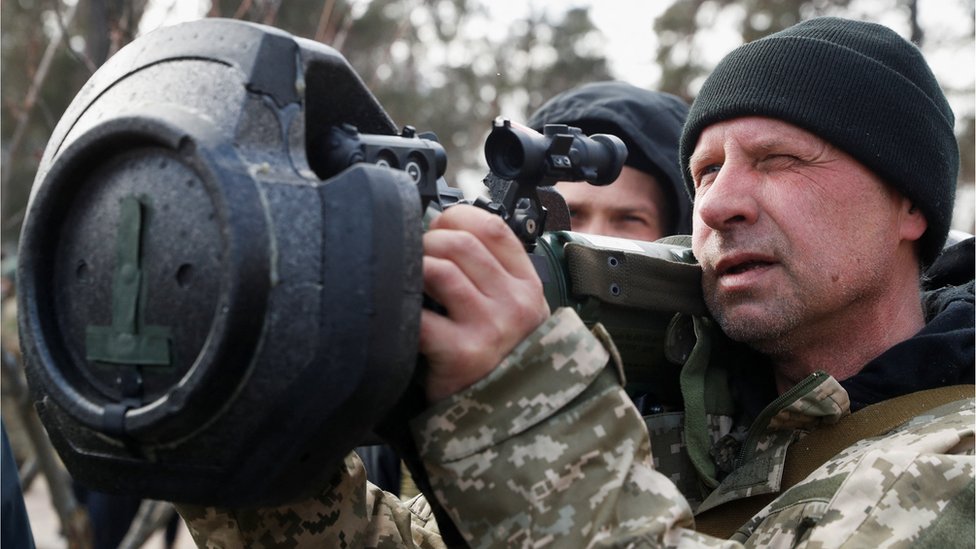“Crimea is Gone,” says Former Trump Adviser Bryan Lanza, hinting at a possible shift in U.S. policy on Ukraine. The incoming administration may prioritize peace negotiations over Ukraine’s territorial goals .
A former adviser to President-elect Donald Trump has revealed insights into the incoming administration’s intended approach to the conflict in Ukraine. According to Bryan Lanza, a senior campaign adviser for Trump’s 2024 presidential run, the new administration will prioritize achieving peace over the reclamation of Ukrainian territories currently occupied by Russia, including Crimea.
In an interview with the BBC, Lanza emphasized that the administration would seek a “realistic vision for peace” from Ukrainian President Volodymyr Zelensky. He remarked, “And if President Zelensky comes to the table and says, well, we can only have peace if we have Crimea, he shows to us that he’s not serious. Crimea is gone.” His comments suggest a stance that regaining Crimea is not feasible, calling into question the U.S. role in supporting Ukraine’s efforts to reclaim lost territory.
The Trump camp, however, quickly clarified Lanza’s remarks, with a spokesperson noting that he “does not speak for [Trump],” and is a contractor, not an official spokesperson for the president-elect. This move appears to distance the president-elect from Lanza’s statements as Trump’s team gears up for office.
Crimea, annexed by Russia in 2014, remains a contentious region. In 2022, Russia launched a full-scale invasion of Ukraine, resulting in further occupations in eastern Ukraine. Throughout the campaign, Trump has indicated that his top priority is ending the war, pointing to military aid as a drain on U.S. resources. However, Trump has yet to specify how he would pursue peace, leaving many to wonder about the administration’s official stance.
While Lanza refrained from discussing other occupied areas in Ukraine’s east, he did stress that “getting Crimea back” is not the U.S.’s goal. Speaking on the BBC World Service, Lanza commented that if Zelensky’s goal is to see Crimea returned to Ukraine with American involvement, “you’re on your own.”
Historically, the U.S. has refrained from deploying soldiers to Ukraine, focusing on providing military aid. This support has allowed Ukraine to bolster its defenses but has not included American troops on the ground.
Despite his remarks on Crimea, Lanza expressed admiration for Ukraine’s resilience, saying, “Their hearts are made of lions.” Yet, he reiterated that the U.S. objective is to “stop the killing,” suggesting that America’s role may shift toward diplomatic support rather than prolonged military involvement.
Ukraine, however, continues to hold that peace must be driven by Russia’s willingness to end hostilities. Dmytro Lytvyn, an adviser to Zelensky, countered Lanza’s comments by asserting that the pressure should be on Russia, which “wants more war.” Lytvyn pointed to President Putin’s continued aggressive stance, which, he argued, signifies that Moscow, not Kyiv, must be persuaded to stop.
Lytvyn emphasized that Ukraine has been seeking peace since 2022 and has provided “realistic proposals.” He argued that Russia, not Ukraine, should be pressed to guarantee peace and prevent further escalations.
Amidst the differing perspectives on the path to peace, a spokesperson for Trump’s transition team clarified that Lanza’s comments do not reflect Trump’s official stance and that decisions on Ukraine would be managed by a select group of trusted aides once in office. Additionally, an unnamed National Security Council aide highlighted Trump’s reputation for making national security decisions independently, often relying on his instincts rather than external influence.
In a recent call with Zelensky, Trump was reportedly joined by billionaire Elon Musk, signaling a potentially unorthodox approach to shaping future diplomacy.
As Trump prepares to take office, all eyes remain on how the administration will navigate its approach to peace in Ukraine. With competing visions for Ukraine’s future, the world is watching to see whether Trump’s focus will be solely on diplomatic resolutions or if his administration will find new strategies for supporting the Ukrainian cause without prolonged military engagement.
Read More:Trump’s new peace plan for Ukraine surfaces online
Read More:Trump makes first cabinet pick, eyes Putin talks
Source: BBC News

